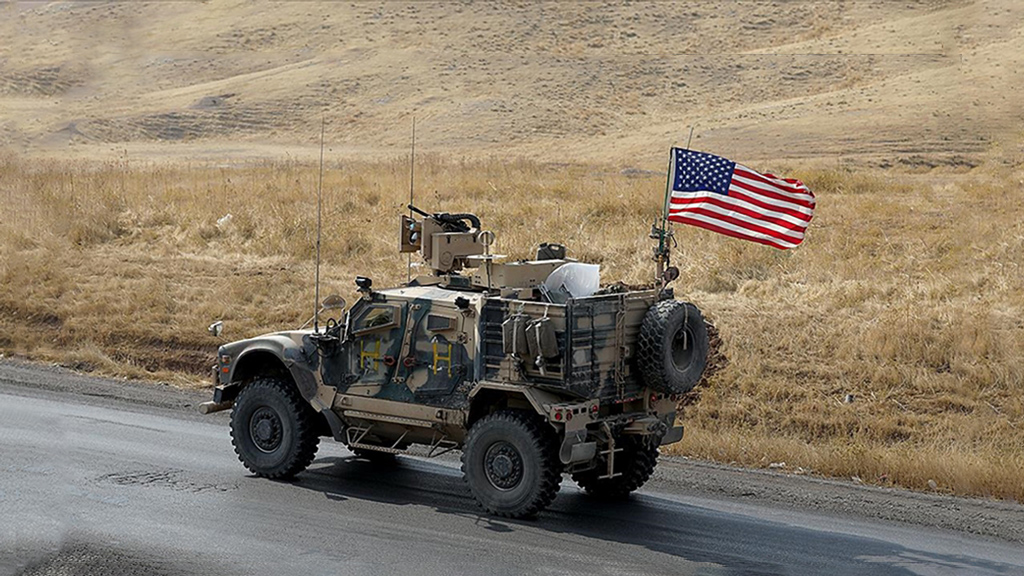
The Next 10 Months are Critical
A potential disengagement over the fate of the refugee deal could create additional problems for Ankara and Brussels alike. Moving forward, European leaders have to stop bashing Turkey and cease their support for terrorist groups targeting Turkish citizens
Share
Turkey is going through a critical period as the international order undergoes major changes and the region witnesses historic ruptures.
When the Cold War ended, the West was quick to proclaim the victory of liberal democracies. Washington's post 9/11 carnage and the Arab Spring souring into civil war established that the liberal victory would be short-lived.
The European far right's occupation of mainstream politics takes place against this particular backdrop and marks a turning point in the history of liberal decline. As the West turns into a realm of protectionism, Islamophobia and anti-immigrant sentiments, the Middle East sets the stage for proxy wars and sectarian clashes. Meanwhile, the worsening situation in Syria made it clear that U.S. President Barack Obama's "liberal spring" was but an illusion.
Brexit and Donald Trump's stunning election victory are the latest signs of what lies ahead. To be clear, the world is headed for more of the same: Over the next months, Italy might follow Britain's foot steps to leave the European Union and France could have a far-right president. In other words, Europeans are opting for strong nation-states at the expense of the EU. To make matters worse, the return to strong nation-states is accompanied by polarization, racism and discrimination against Muslims. Ultimately, the growing tensions between Turkey and the European Union fit the pattern.
The European Parliament's call for the suspension of membership talks with Turkey is not just about the West's dissatisfaction with the state of emergency either. What we witness today are the symptoms of a much bigger transformation underway. Unable to keep a lid on the protectionist wave in Europe, the politicians in Brussels have finally decided to wave the white flag.
As the Western-dominated world system faces greater challenges than ever, European governments and the United States are trying to redefine themselves - not just the international order. Inevitably, such drastic changes will affect Turkey and the region.
The current political climate in the world calls for a redefinition of Turkey's relationship with Brussels. At this point, it's a fact - not just speculation - that the Turks will not attain EU membership over the next decade. What we need to do now is to come up with new rules of engagement. To be clear, privileged partnership is not the answer. As Europe comes to terms with the departure of Britain and possibly others, Turkey-EU relations will evolve into something new. Until that happens, both sides need to find a way to prevent the tug-of-war over the refugee deal and visa liberalization from turning into a source of instability. After all, Turkey and Europe have a lot of shared geographic, economic and humanitarian interests. Any kind of crisis would hurt both sides.
From counterterrorism to the refugee crisis to financial crisis and xenophobia, Turkey-EU relations are not a zero-sum game. More importantly, European leaders need to start preparing for the potential expansion of the populist wave once Donald Trump enters the White House.
The next 10 months are critical: Germany and France will hold key elections. At the same time, the stakeholders in Syria are making moves to tilt the scales in their favor before Mr. Trump is sworn in. (The Assad regime, backed by Russia and Iran, is desperately trying to retake Aleppo.) Furthermore, Mr. Trump could destabilize the global financial order and the Middle East in his initial six months as president. To avoid major losses, both Turkey and the Europeans need to prepare for what's ahead.
To be clear, a potential disengagement over the fate of the refugee deal could create additional problems for Ankara and Brussels alike. Moving forward, European leaders have to stop bashing Turkey and cease their support for terrorist groups targeting Turkish citizens. Another important thing is for them to accept that the Turkish government will not be driven into a corner with economic threats. Finding a solution to problems threatening both sides' interests through dialogue and cooperation is the only way to prepare for the transformation.
[Daily Sabah, November 30, 2016]
Tags »
Related Articles
Opinion
Imperialism Orientalism and Zionism: The shaping forces of US Middle East policy
November 2024






